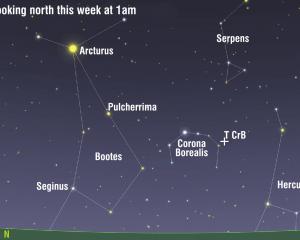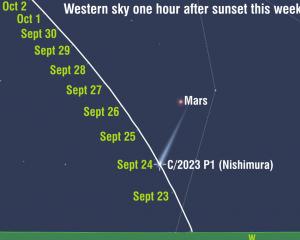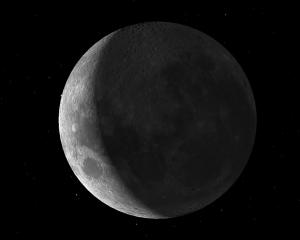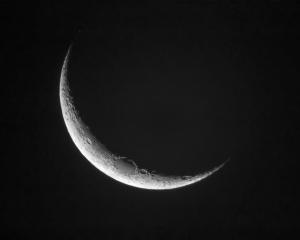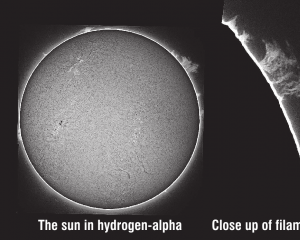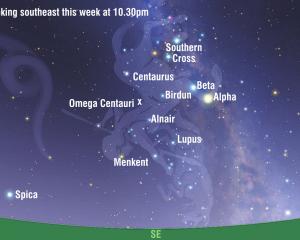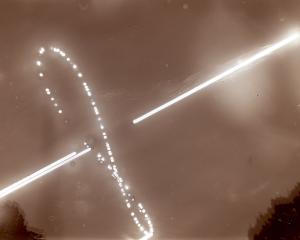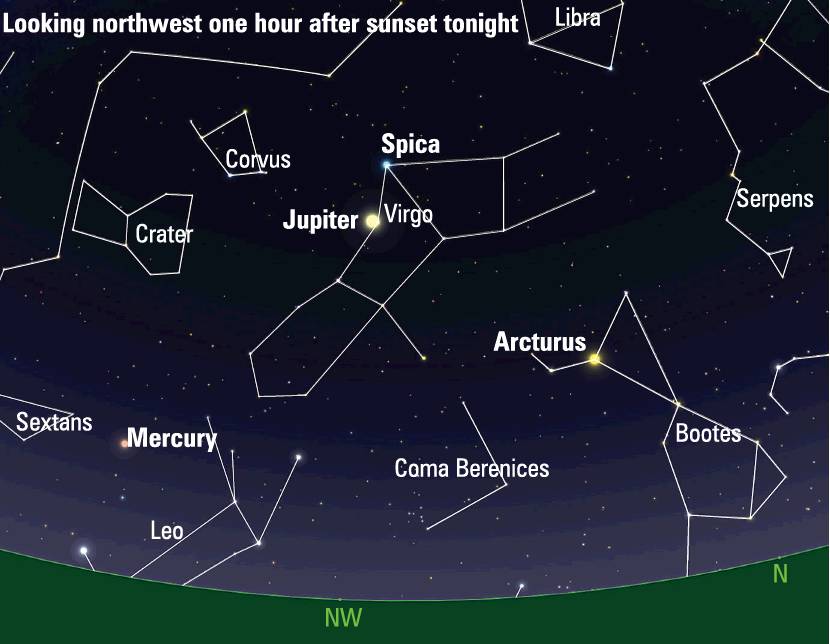
Ian Griffin shares some tips for finding the biggest planet in our solar system, Jupiter.

This week I'd like to invite you to join me on an apres sunset tour of the northwestern sky. With the sun dipping below the horizon at about 5.40pm, the best time to head out is about an hour or so later, just as the sky is getting truly dark.
As darkness gathers, the first object you will see is Jupiter, a bright yellow/white "star'' some 40deg above the horizon. This week Jupiter is nearly 900 million km away from Earth. This means that travelling at almost 300,000km per second, the light you see when you look at the largest planet in the solar system left its environs just over 48min ago.
The next month or so is still a great time to study Jupiter, especially if you have a telescope. Even modest optical aid will show the planet's fascinating clouds and quartet of bright moons.
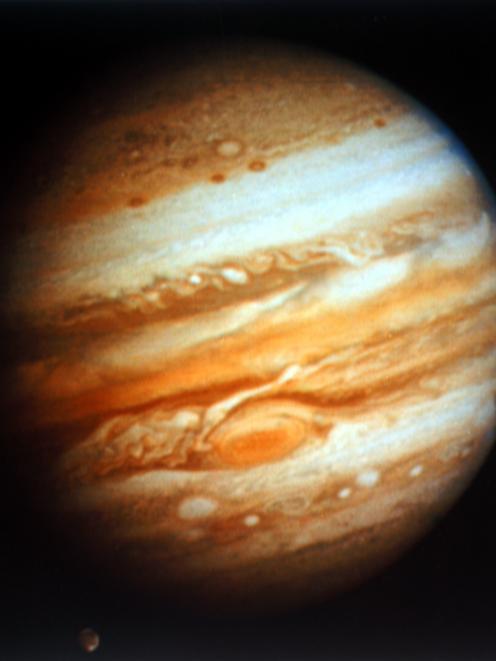
Just above Jupiter in the sky is Spica, the brightest star in the constellation Virgo, the Virgin. Spica is about 250 light years away from Earth, so the light you see from this star left in the year 1767. To the eye, Spica appears to be a blue-white colour, which indicates that its surface temperature is more than 25,000degC; much hotter than that of the sun.
For the next few nights Jupiter forms the apex of a triangle, the other members of which include the planet Mercury and the bright star Arcturus. Arcturus is a bright orange-red star in the constellation Bootes, the Herdsman, that you will find below and to the right of Jupiter.
Mercury is by far the dimmest of the celestial trio, although it should still be easy to see, standing some 12 degrees above the horizon an hour after sunset. If you do have a telescope, it's certainly worth pointing it at the innermost planet, which resembles a beautiful tiny crescent moon. Mercury is more than 109 million km away from Earth, and its light takes just over six minutes to reach your eyes.

